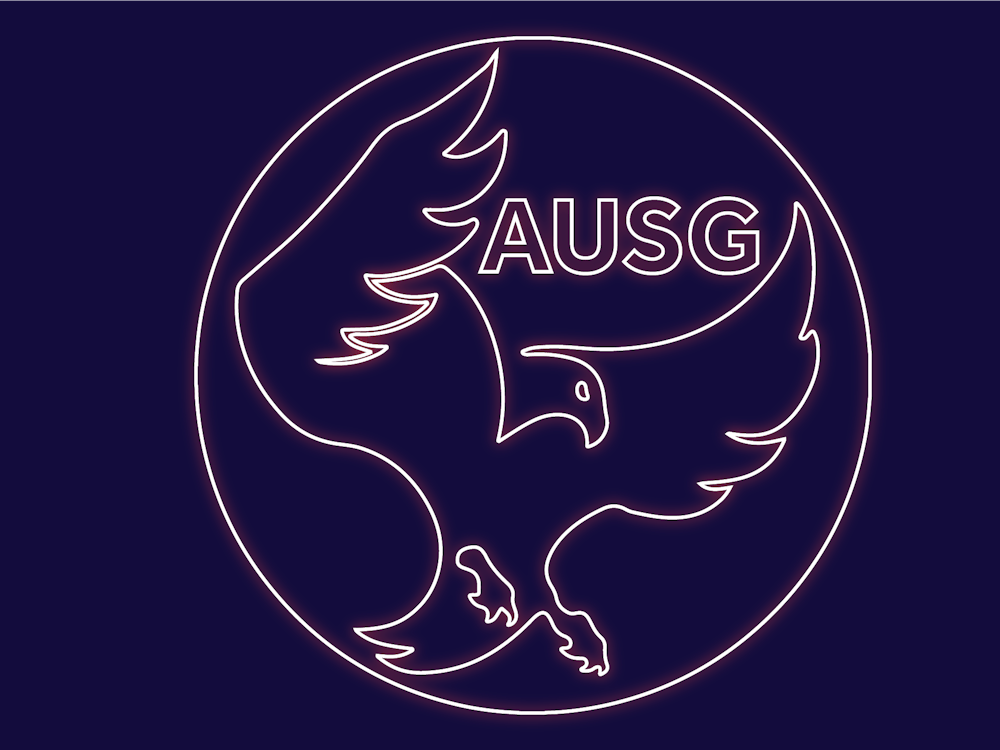When students head to the polls for this spring’s American University Student Government elections, they’ll be weighing in on the University’s updated freedom of speech policies and if they should stay.
A referendum asks students two specific questions: should the University remove the ban on indoor protesting? And, should the University lift its updated postering policies requiring that posters in University-owned spaces be “limited to event promotion with the following details: an event’s purpose, the sponsoring organization’s purpose, or logistical details for an event?”
The results of the vote will then go to the administration for consideration as it evaluates whether to keep the policies for the fall semester. The University is not obligated to implement the results of the referendum.
The Jan. 25 email said “protesting” includes posters and physical or other kinds of demonstrations. Anyone found violating this policy would be “subject to disciplinary action,” and any unauthorized posters would be taken down, according to the email.
Speaker Pro-Tempore Salvatore Cottone, a junior in the School of Public Affairs, helped draft the referendum, inspired by student responses to the new policies. He added that the goal of the referendum is to bring student input to the administration’s attention.
“The student body has shown a lot of concern, especially through social media, since they lost a lot of ways to actually protest on campus,” Cottone said. “The entire student body can vote in a very recognized and official way that the University is obliged and required to pay attention to.”
Cottone also said that the language used in the new policies is vague.
“Students don’t know what counts as a protest,” Cottone said. “And that has been removing our campus-like culture of activism.”
Senator-at-Large Hanna Hajdu, a freshman in the School of Public Affairs, also sponsored the referendum. The referendum was passed unanimously by the Undergraduate Senate on Feb. 25.
Hajdu said the answers collected in the upcoming election will help present a consensus on how students feel.
“We need to gather student input and really get their perspective and quantify it because there are a lot of strong feelings surrounding the issue,” she said. “But we needed a strong way to address how we're representing the students and what we're trying to accomplish here.”
Hajdu added that the protest ban and policies, although the University intended them to foster inclusion, continue to exclude and limit student voices by restricting their speech. Without the policies, she thinks there would be more communication between students and the administration.
“The reason why we specifically use the word ‘rescind’ this policy is because, if this [referendum] isn’t blocking student voices, then there's greater collaboration between administration and student leaders, as well as the students at large,” Hajdu said.
Cottone added that the restrictions on protesting and postering have created tension in the campus environment, saying that there is a better, more collaborative, way for administration and students to discuss protesting. Following the election results, he hopes the administration will consider what students have to say about the new policies and possibly make some changes.
“[The policies are] possibly the worst way to do this because it just divided our campus so much more,” Cottone said. “Administration is obviously seeing that, and I hope when this passes, they’re going to revise or review if they’re going to continue this on at the end of the semester.”
Correction: A previous version of this article misspelled the last names of Sal Cottone and Hanna Hajdu. The article has been updated with the correct spelling.
This article was edited by Kathryn Squyres, Abigail Turner and Abigail Pritchard. Copy editing done by Luna Jinks, Isabelle Kravis and Ariana Kavoossi.





